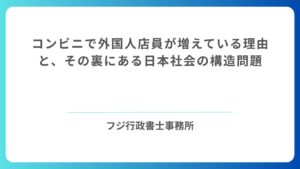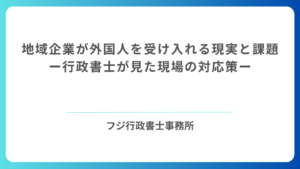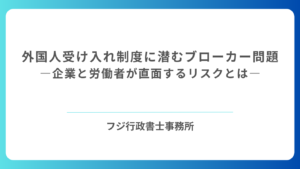外国人の「本音」が怖い?違和感を感じる日本人の心理
外国人が会議や日常会話で率直に意見を述べると、日本人が一瞬身構えたり、表情を曇らせたりする場面を見かけることがあります。相手は冷静に事実を伝えているだけなのに、「厳しい」「否定された」「距離を感じる」と受け取られてしまうのです。この現象は、外国人の性格や言い方の問題ではなく、日本人の側にある無意識の心理反応であることが多く、そこに焦点を当てる必要があります。
When foreign workers express their honest opinions in meetings or conversations, Japanese colleagues sometimes appear startled or uncomfortable. Even when spoken calmly, such remarks are perceived as harsh or confrontational. This reaction is not necessarily about the foreigner’s personality—it often reflects unconscious psychological responses on the Japanese side.
“本音と建前”文化に慣れた日本人にとっての異物感
日本では「思っていても言わない」「相手に直接言わず察してもらう」という習慣が根強くあります。そのため、率直な物言いを聞くと、「空気が読めていない」「場を乱している」と受け止められやすく、実際には感情的でも攻撃的でもない言葉が、そう解釈されてしまうのです。外国人にとっては対話の入り口でも、日本人にとっては“異物”に感じられることがあるという現実があります。
In Japan, the custom of avoiding direct statements and expecting others to “read the air” is deeply rooted. As a result, straightforward comments—though emotionally neutral—are often seen as lacking sensitivity or disturbing harmony. What a foreigner sees as a normal conversation opener may be perceived as out of place by a Japanese listener.
なぜ「怖い」と感じるのか:心理的防衛反応の構造
外国人の発言に“怖さ”や“構え”が生じるのは、自分の立場が揺らぐのではないかという防衛本能によるものです。日本の集団社会では、調和や立場の安定が重視され、異なる意見に対する耐性が育ちにくい構造があります。その結果、意見そのものよりも、「その言い方」「その場で言うのか」が強く問題視されがちなのです。
The discomfort or fear triggered by a foreign worker’s honest opinion often stems from a subconscious need to protect one’s status or group stability. Japanese organizational culture places a high value on harmony and predictability, which discourages tolerance for differing opinions. Thus, the issue becomes not what was said, but how and when it was said.
「意見を言う=対立を生む」という思い込み
日本では、意見を言う=対立が始まる、という前提が根深くあります。これは学校教育や家庭環境でも「和を乱さないこと」が強調されてきたことに起因します。結果として、冷静で建設的な発言であっても、「議論を吹っかけられた」「意見された」として拒否反応が起こるのです。
In Japan, many people grow up believing that expressing opinions leads to conflict. This is reinforced by school and home environments that value keeping the peace. As a result, even calm and constructive remarks may provoke resistance, as they are seen as challenges or confrontation.
実際の現場:外国人の一言が波紋を呼ぶ
ある介護施設では、ベトナム人スタッフが「このやり方は非効率ではないですか?」と口にしただけで、上司が明らかに不機嫌になり、それ以降業務指導が一切なくなったという事例があります。本人は改善提案のつもりでしたが、日本人の上司は「批判された」と受け止め、信頼関係が崩れてしまったのです。これは性格の問題ではなく、受け取り側の想定外の反応による摩擦でした。
At a nursing care facility, a Vietnamese staff member casually remarked, “Isn’t this method inefficient?” The Japanese supervisor became visibly upset and stopped providing guidance thereafter. Although the foreigner meant it as a suggestion, it was perceived as criticism, resulting in a breakdown of trust. This was not a personality issue but a cultural misalignment in expectations.
「ここは日本だから」と言って押さえつけるのは危険
外国人が率直に発言したとき、日本人がよく口にする「ここは日本だから」という言葉は、非常に危ういものです。これは、文化的違いを理解しようとする姿勢ではなく、単に自国の価値観を一方的に押し付けるマウントに近いものです。実際、それが原因で外国人が沈黙し、やがて意欲を失っていく職場も少なくありません。
When Japanese workers respond with “This is Japan” to a foreigner’s honest comment, it often functions less as cultural clarification and more as a power move. Rather than encouraging mutual understanding, it imposes domestic values and silences the other party. Such remarks frequently lead foreign workers to withdraw and lose motivation.
「優しさ=何も言わない」ではない
日本では「優しい人=あまり言わない人」という認識が根強いですが、外国人にとっては「率直に伝えること=相手を大事にしている」という考え方が一般的です。この認識のズレが、誤解を生み、職場での人間関係にひずみを生じさせています。
In Japan, kindness is often associated with being reserved. However, many foreigners view honesty as a form of respect. This difference in perception causes misunderstandings and tension in workplace relationships.
本音に慣れていないだけで、悪意ではない
外国人の率直な言葉に「怖さ」や「ムカつき」を感じるのは、実は“本音”に慣れていないだけであり、悪意によるものではありません。日本人が本音のやり取りに弱いという傾向があることを認識することで、過剰な防衛反応を避けるヒントになります。
Feeling fear or irritation toward direct re
marks often stems from unfamiliarity with frankness, not malice. Recognizing that many Japanese people are simply unaccustomed to honest exchanges can help reduce defensive reactions.
あわせて読みたい
👉 フジ行政書士事務所のご紹介はこちら
👉 言いたいことを言う外国人は悪いのか?
👉 外国人が注意されたときに逆に反論する理由とは?
👉 公式サイトはここをクリック
👉 LINE公式アカウントはこちら
または、下のQRコードをLINEアプリで読み取ってください。










